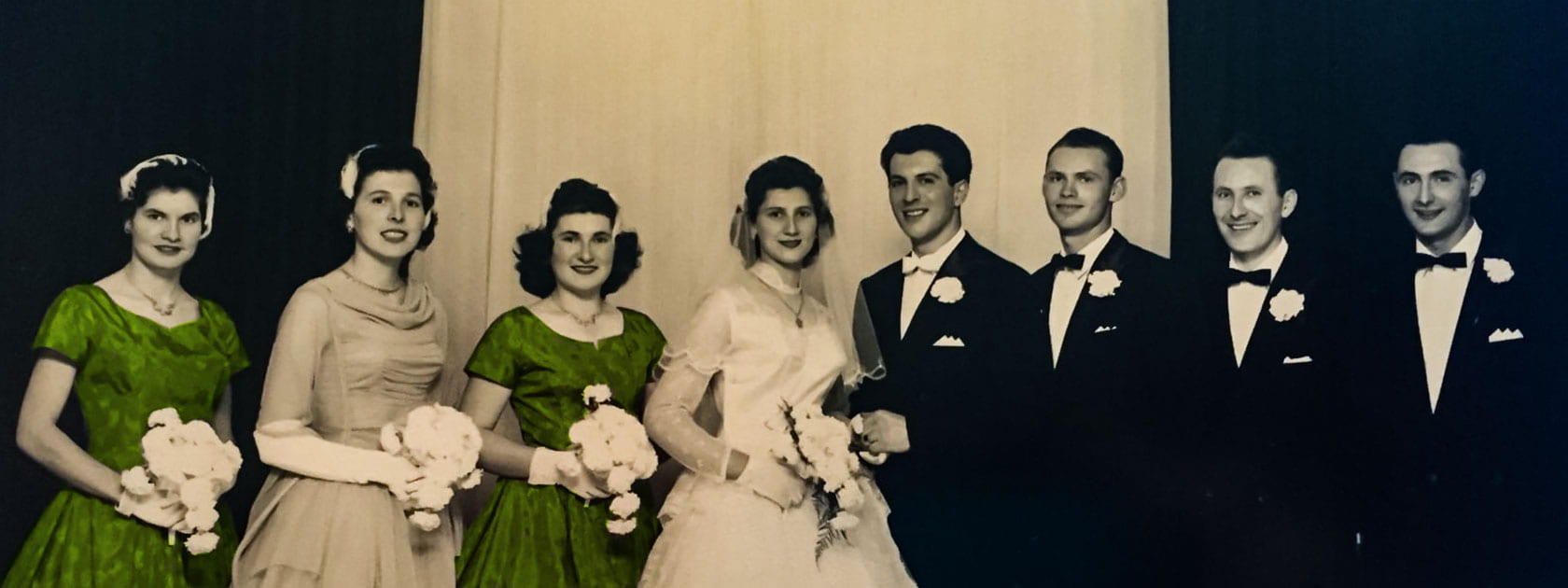Date
August 16, 2011
Maker
Columbus Centre
Accession#
ICEA2011.0070.0001
Interview With Sal Pantalone
Salvatore Pantalone was born in 1924; the fourth child in a family of three other boys and one girl. His parents, Fred Rocco and Antoinetta Pantalone were born in Abruzzo and Lazio, Italy but met and were married in Ottawa. Sal’s father, Fred, was an Ottawa firefighter, and worked to help contain the fire of 1916 at the Canadian Parliament buildings. He was extremely passionate about his career and was promoted twice to reach the position of Lieutenant, which created some jealousy and discrimination — resulting in his car being scratched while at an evening event for the fire department. Sal explains that his father was demoralized and embarrassed when arrested and handcuffed in front of his men in June of 1940. His father was interned at camp Petawawa for approximately seven months before returning home to find that his career with the fire department was gone. He was heartbroken to discover that the union had voted 100% against having him return to his job. Sal adds that the most traumatizing event for the children was seeing their father return home after his release with hair that had changed from black to whitish-grey. The family faced financial difficulty with the loss of their father’s job, so Sal joined the Canadian navy at 16 in order to help provide support. Fred Pantalone was soon given a position with the navy as well, which led to a career after the war with the Canadian Joint Staff in Washington where he spent many happy years with his wife. Sal believes that his father was not a victim of the actions of the Canadian government, but rather “a victim of Italy declaring war against us.” His father did receive a letter of apology from Justice Hyndman, saying that he was an innocent man and that he never should have been interned.
In this opening clip Sal Pantalone speaks about his parents, their migration to Canada and his siblings.
Sal Pantalone speaks about growing up in Ottawa.
Sal Pantalone speaks about his father’s migration from Italy and his early life in Canada. He also speaks about his mother’s early life.
Sal Pantalone speaks about his father’s career as a firefighter.
Sal Pantalone speaks about the outbreak of war and his father’s arrest.
In this clip Sal Pantalone explains how his mother coped during his father’s internment. He also speaks about serving in the Canadian navy at the same time that his father was interned.
Sal Pantalone speaks about his father’s return home and describes how he was not able to return to his job as a firefighter due to his internment.
Sal Pantalone mentions that his family did not go to visit his father at Petawawa and that they did not hire a lawyer to secure his release. He also speaks about other Ottawa families he knew who had family members interned.
Sal Pantalone describes the night his father returned from the internment camp.
Sal Pantalone speaks about his father’s life after his release from camp.
Sal Pantalone shares stories about his father’s experience in the internment camp and speaks about the carvings his father made in the camp.
In this clip Sal Pantalone speaks about the jobs his father took after his release from camp. He then goes on to speak about his father going to work for the Canadian government Naval Service in Washington, DC.
Sal Pantalone speaks about his father’s involvement with the Italian community and with the Order Sons of Italy prior to his internment. He goes on to say that his father did not participate in the community after his release.
Sal Pantalone briefly speaks about a letter written by Judge Hyndman on his father’ behalf stated that he should not have been interned.
Sal Pantalone speaks of his service in the Canadian navy.
Sal Pantalone speaks about the discrimination Italians faced prior to the war. He also speaks about his father being heart-broken when he was unable to resume his job as firefighter after his release from the camp.
Sal Pantalone shares his father’s feelings regarding the Canadian government and the internment period.
Sal Pantalone shares his opinion regarding compensation.
Sal Pantalone speaks about his father’s service in the Canadian Navy after his release from internment.



